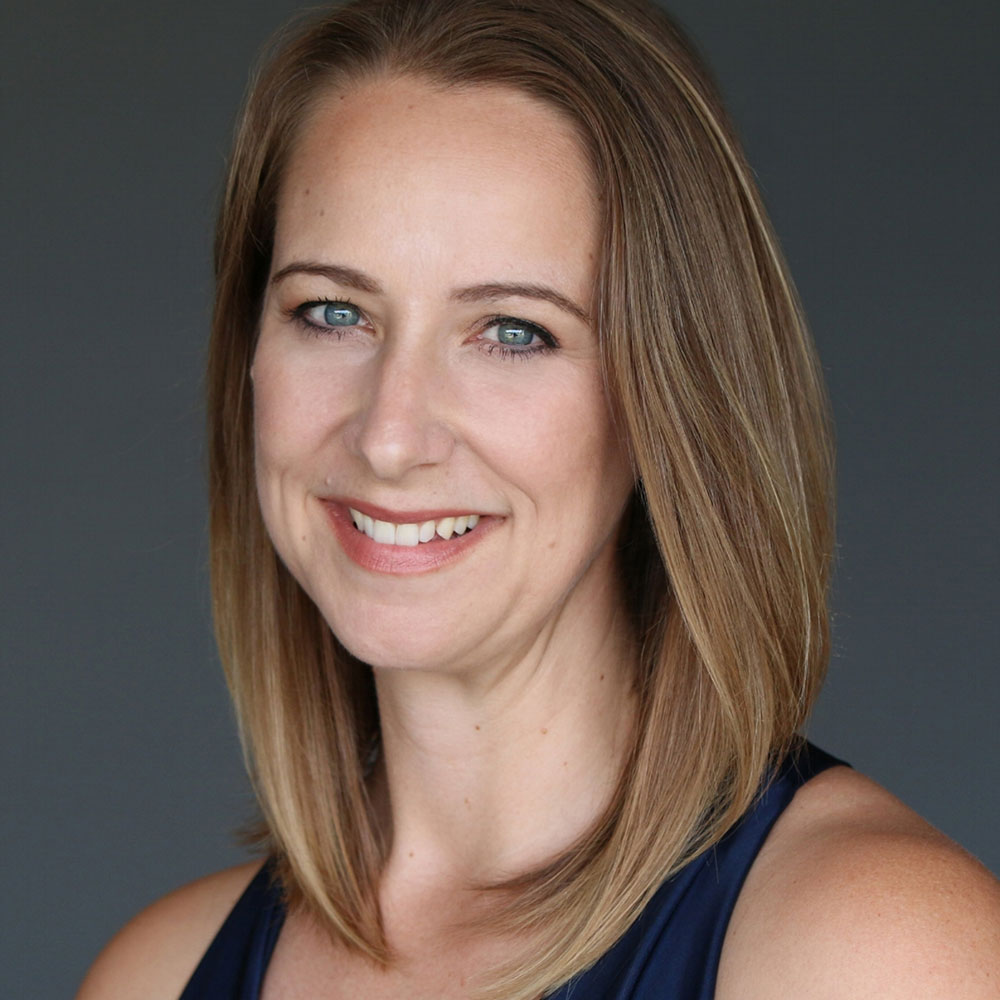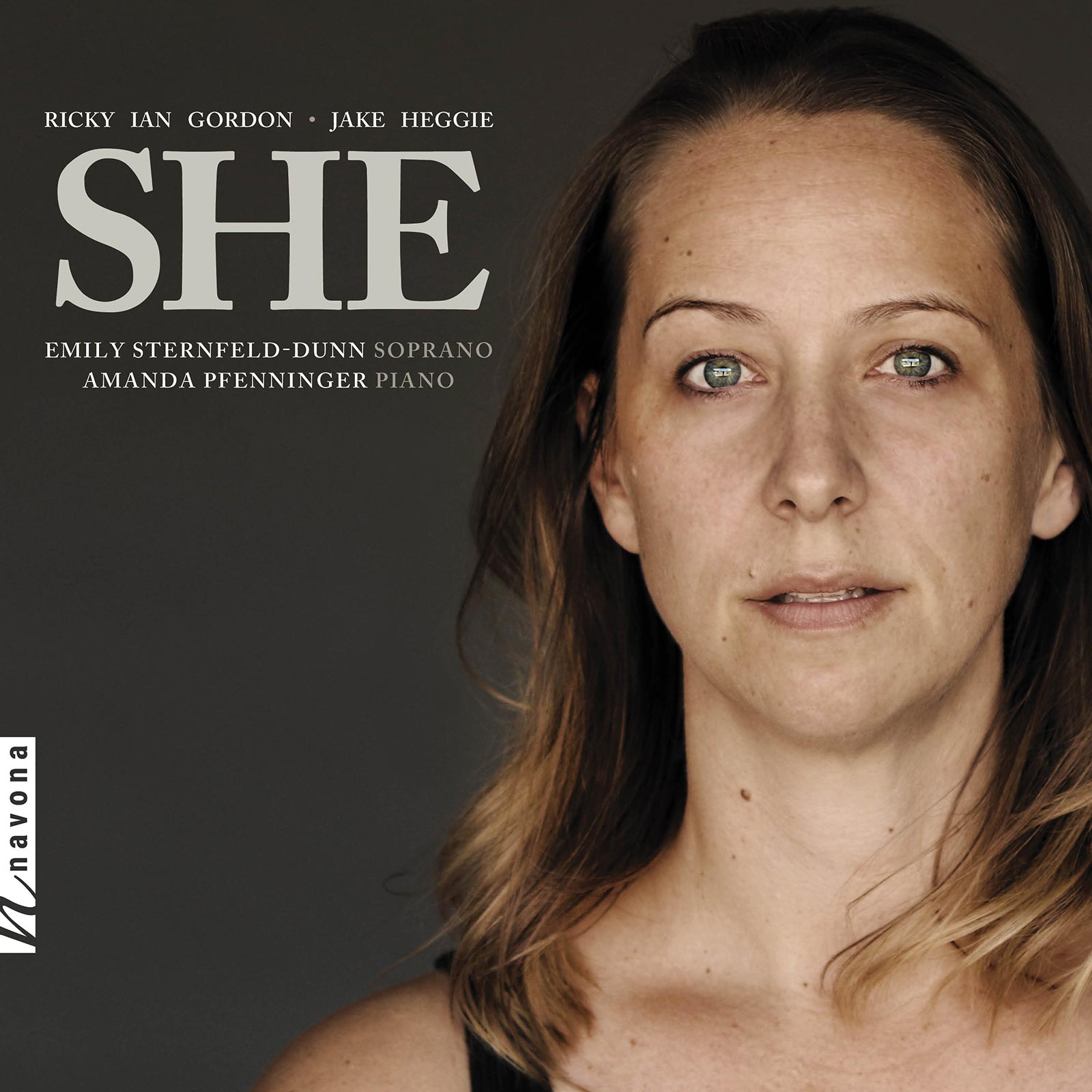
For her debut album on PARMA recordings SHE, Emily Sternfeld-Dunn serves as the voice of two of history’s strongest female characters. The poetic musings in the lyrics soar with Sternfeld-Dunn’s unmistakable soprano under the current of the tender, delicate melodies performed by pianist Amanda Pfenninger.
Today, Emily is our next featured artist in “The Inside Story,” a blog series exploring the inner workings and personalities of our artists. Read on to hear what message Emily hopes her daughters will discover in SHE…
When did you realize that you wanted to be an artist?
Music is my family’s trade. My maternal grandparents were professional musicians and made music education a priority for their kids. As a result, my parents, siblings, and the majority of my extended family are all professional musicians or artists of some sort.
As kids, my brothers and I would listen to the car radio, and at the prompting of my parents, name the various orchestral families. Another road trip favorite involved singing cannons, our little voices struggling alongside our parents’ mature instruments. I don’t know that I had any other viable career options. Of course, my parents would have encouraged and supported anything I chose to pursue, but I always felt indebted to the music education that had been so effortlessly integrated into my childhood.
While my life has always been anchored in music, it is in the last five years that I have really embraced my identity as an artist. Every year that passes, I have a clearer sense of what I want to say and an ever-improving technique that can support those ideas.
In the event of a zombie apocalypse, what are the three things you absolutely can’t live without?
Well, first, coffee. Second, stage makeup so I can disguise my undeadness. Third, a clean toothbrush and toothpaste. That counts as one thing, right? Gosh, there’s nothing better than freshly cleaned teeth! And I figure good hygiene will help keep me safe if the zombie stuff is spread by a virus. (I’m still not exactly sure how it all works…)
What is your guilty pleasure?
I want to say, “getting a massage,” but I’ve worked really hard to take the “guilty” part out of my monthly ritual. As a singer, my body is my instrument and regular massages are part of the care and maintenance of that instrument. Everyone should get massages. Seriously. Go get one. You deserve it!
Guilty pleasure, hmmm. Instead, I’ll say…watching Real Housewives of New York. Ugh, I can’t believe I’m admitting this! But, I mean, who doesn’t love watching well dressed women in their 50’s with New York accents argue over who said what during their vacation in Mexico?!
What does this album mean to you personally?
SHE has been a dream of mine since I first sang Eve-Song, ten years ago. Initially I was drawn to the work because the Eve that Philip Littell had created was so different from the Eve I experienced in Sunday school. Over the years, it has been unendingly enriching to play such a complex woman who is celebrated for her individuality.
My husband and I had children right after finishing our graduate work. I always knew that being a parent would be the most important, fulfilling, and creative work I ever did. And it has been. We have two beautiful, bright, funny, precocious little girls. And because of my decision to start a family, I’ve willingly made certain career choices. One of which, is that I have not taken many auditions for opera companies, agents, etc. This album is a way for me to further my career without needing permission from anyone. But more importantly, in this current cultural era, I view this album as a letter to my daughters about their role and worth as women. Through Emily Dickinson’s poetry and Littell’s imagined Eve, I hope they see that strong women can have questions and doubt and be smart and ironic and valuable.

What was your favorite musical moment on the album?
On the final day of recording, we began the session with Ricky Ian Gordon’s song Too Few the Mornings Be. Over the previous days we had tracked the bulk of the album; Jake Heggie’s demanding Eve-Song was completed and I definitely felt some weight had been lifted from my shoulders. My pianist and I had settled into a rhythm with each other, the engineer, and producer. The piano was getting better each day and the room had proven to be the unexpected MVP of the session.
As we began recording on that third day, I was relaxed and felt a richness and flexibility in my instrument that made singing Emily Dickinson’s words with Gordon’s melody incredibly gratifying. Fortunately, my experience as an artist was captured on the recording and I’m grateful that it can now be shared with those listening to it.
Is there a specific feeling you want listeners to tune into when hearing your work?
It is my hope that when people listen to SHE, they are challenged and comforted. I hope there are moments that cause listeners to catch their breath or rewind the track to hear a passage one more time, because something in the way the piano or my voice or the composition or the lyrics unexpectedly moved them. I hope they come to this album with open hearts and ears. This music can be complex, and it may take several hearings to appreciate the many layers. Above all, I hope listeners find hope and comfort in the knowledge that no one has all the answers and that contentment is found in the questioning.

Emily Sternfeld-Dunn, soprano, is a strong advocate for new music and unconventional performances of art song and opera. Ms. Sternfeld-Dunn regularly gives recitals across the country featuring works of contemporary American composers. Significant performances with Hartford Opera Theater include Laetitia in Menotti’s The Old Maid and the Thief and Aunt Polly and Susy Harper in Tom Sawyer, a new work commissioned by the company.

